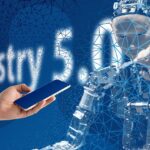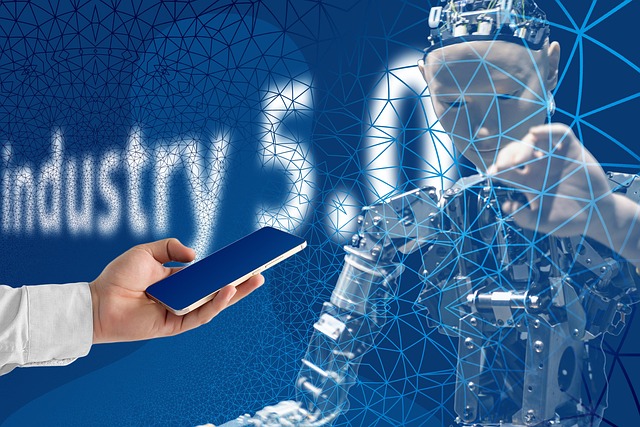# AI in Action: Transforming Everyday Life and Industry Through Innovative Technology Solutions
Artificial Intelligence (AI) has emerged as a transformative force across various sectors, fundamentally reshaping how we live, work, and interact with the world. From personal assistants to advanced industrial automation, AI technologies are being integrated into our daily routines and business operations, driving efficiency and innovation. This article explores the multifaceted applications of AI in everyday life and industry, highlighting its profound impact on society.
## Everyday Life: Enhancing Convenience and Personalization
In recent years, AI has seamlessly woven itself into the fabric of daily life, enhancing convenience and personalization for users. Smart home devices, such as voice-activated assistants like Amazon’s Alexa and Google Assistant, have revolutionized how individuals interact with their environments. These systems use natural language processing (NLP) to understand and respond to user commands, enabling hands-free control of various tasks, from adjusting thermostats to managing shopping lists.
Moreover, AI-driven recommendation systems have transformed how consumers discover products and services. Streaming platforms like Netflix and Spotify leverage sophisticated algorithms to analyze user preferences and viewing habits, delivering tailored content suggestions. As a result, users enjoy a more personalized experience, which not only keeps them engaged but also fosters brand loyalty.
Additionally, AI’s role in enhancing customer service cannot be overlooked. Chatbots and virtual assistants are increasingly deployed by businesses to handle customer inquiries efficiently. These AI-driven solutions provide immediate responses to common questions, freeing up human agents to tackle more complex issues. Consequently, businesses can improve customer satisfaction while reducing operational costs.
## Industry Applications: Driving Efficiency and Innovation
Turning to the industrial landscape, AI technologies are driving unprecedented levels of efficiency and innovation. In manufacturing, for instance, AI-powered predictive maintenance systems are revolutionizing equipment management. By analyzing data from machinery, these systems can predict potential failures before they occur, allowing companies to schedule maintenance proactively. This not only minimizes downtime but also extends the lifespan of equipment, resulting in significant cost savings.
In the realm of logistics and supply chain management, AI algorithms optimize routes and inventory levels, ensuring that goods are delivered efficiently. Companies like Amazon and Walmart utilize AI to analyze vast amounts of data, enabling them to anticipate demand fluctuations and adjust their operations accordingly. Such capabilities enhance operational efficiency, reduce waste, and improve customer satisfaction by ensuring products are available when needed.
Furthermore, AI is playing a crucial role in the healthcare sector, where it is used to analyze medical data and improve patient outcomes. Machine learning algorithms can sift through extensive datasets to identify patterns that human practitioners may overlook. For instance, AI systems can assist in diagnosing diseases, predicting patient outcomes, and personalizing treatment plans based on an individual’s genetic makeup. As a result, healthcare providers can deliver more precise and effective care, ultimately improving patient well-being.
## Ethical Considerations and Future Implications
Despite the numerous benefits AI brings to everyday life and industry, ethical considerations surrounding its implementation cannot be ignored. Concerns about data privacy, algorithmic bias, and job displacement have sparked significant debate among policymakers, technologists, and the public. As AI systems increasingly rely on vast amounts of personal data, ensuring robust data protection measures is paramount. Organizations must implement transparent data handling practices to build trust with users and comply with regulations.
Addressing algorithmic bias is another critical challenge. AI models are only as good as the data they are trained on, and if that data reflects societal biases, the AI can perpetuate and even exacerbate these issues. Developers and researchers must prioritize fairness and inclusivity in AI training processes to mitigate these risks. This involves diversifying training datasets and continuously monitoring AI systems for unintended consequences.
Looking ahead, the future of AI promises even greater advancements and integration into our lives. As technology evolves, we can expect AI to play a more significant role in areas such as autonomous vehicles, smart cities, and personalized education. The potential for AI to augment human capabilities and drive innovation is immense, but it requires careful consideration of ethical implications and a commitment to responsible development.
## Conclusion: Embracing the AI Revolution
AI is undeniably transforming both everyday life and industry through innovative technology solutions. From enhancing convenience and personalization in our daily routines to driving efficiency and innovation in various sectors, the impact of AI is profound and far-reaching. However, as we embrace the AI revolution, it is crucial to navigate the associated ethical challenges thoughtfully. By prioritizing transparency, fairness, and accountability, we can harness the full potential of AI while ensuring it serves as a force for good in society.
In conclusion, the integration of AI into our lives and industries is not merely a trend but a fundamental shift that will continue to shape our future. As we stand on the brink of this technological revolution, it is essential to remain vigilant and proactive in addressing the challenges it presents, ensuring that AI remains a tool for progress, innovation, and enhanced quality of life for all.











